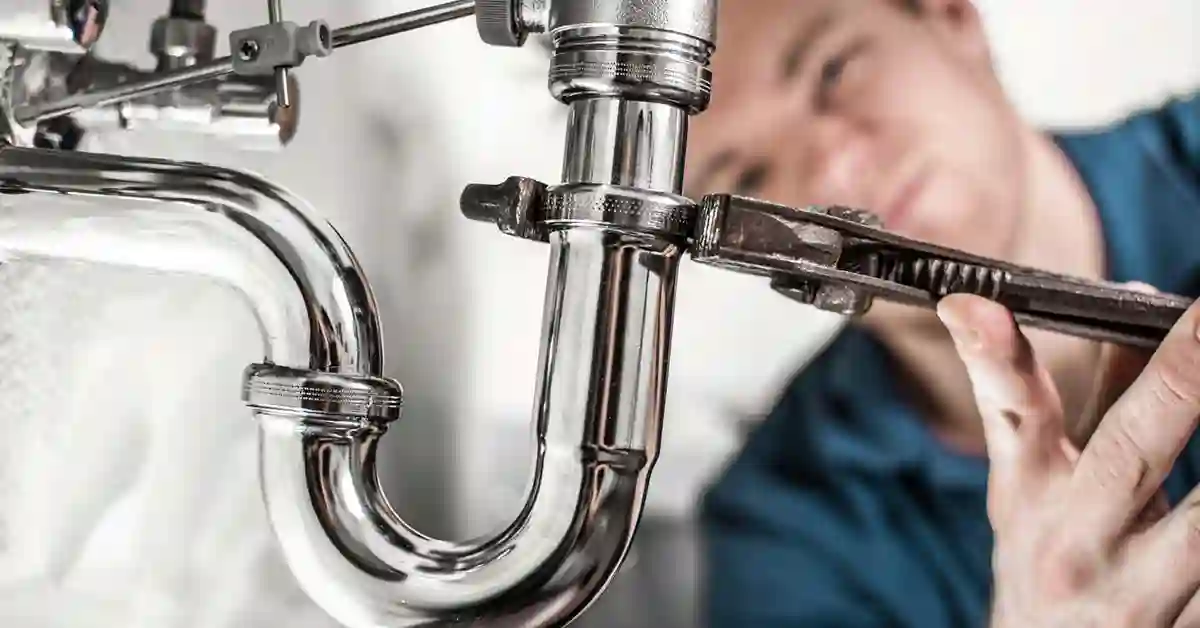
Starting a plumbing business can be an incredibly rewarding venture for skilled plumbers ready to strike out on their own. This guide will walk you through every step you need to know, from building your business plan to growing your customer base.
Table of Contents
- Why Start a Plumbing Business
- Understanding the Plumbing Industry
- Building Skills and Gaining Experience
- Crafting a Solid Business Plan
- Choosing a Business Structure
- Licensing and Certification Requirements
- Building a Stellar Reputation
- Marketing Your Plumbing Business
- Managing Your Finances
- Investing in the Right Tools and Equipment
- Hiring and Retaining Top Talent
- Continued Growth and Success
Why Start a Plumbing Business?
Plumbing is an essential service, and the demand for skilled plumbers continues to grow. Almost every home, business, and public place relies on plumbing systems. This creates a constant need for professionals who can maintain and repair these important services. Here’s why starting your own plumbing business can be an excellent idea:
- Potential Demand: Plumbing services are in demand year-round. Pipes break, toilets clog, and new homes need water systems, making it a steady field.
- Long-Term Growth: Plumbing offers an excellent opportunity for growth. You can earn steady income by building a good reputation and a loyal client base. This includes both one-time jobs and regular maintenance services.
Understanding the Plumbing Industry
The plumbing industry encompasses a broad spectrum of services, from residential repairs to commercial installations. Understanding these areas will help you decide where to focus your business.
- Market Overview: The plumbing industry covers residential, commercial, and industrial sectors, each with unique requirements. Residential plumbing usually includes repairs and installations in homes. In contrast, commercial plumbing often involves large installations for buildings and complexes.
- Key Challenges in the Industry: Every field has its challenges, and plumbing is no different. You can handle emergency repairs, manage client expectations, and stay updated on regulations. Understanding these challenges upfront can help you navigate them more effectively.
Building Skills and Gaining Experience
Your skills and experience are the foundation of your business. Plumbing is a hands-on trade that requires a high level of expertise.
- Importance of Certification: In many states, authorities require plumbers to obtain certification to operate legally. Certification not only meets legal requirements but also signals to customers that you’re qualified.
- Gaining Hands-on Experience: Before starting your own business, it’s wise to work with experienced plumbers to gain hands-on experience. Apprenticeships and on-the-job training provide invaluable skills and allow you to learn best practices.
Crafting a Solid Business Plan
A well-thought-out business plan is your roadmap to success. It lays out your goals, strategies, and financial projections, guiding your decisions and helping secure funding if needed.
- Essential Elements of a Business Plan: Your plumbing business plan should include an executive summary, business description, market analysis, organizational structure, services, marketing strategy, and financial projections. Each of these elements provides clarity on how you’ll operate and grow.
- Setting Your Vision and Goals: Setting goals helps keep you focused and motivated. Consider both short-term and long-term objectives, like the number of clients you aim to serve or revenue milestones.
- Conducting Market Research: Before you start, conduct thorough market research to understand your target audience, their needs, and the competitive landscape. This information will help you position your plumbing business for success.
- Defining Your Services: Determine the type of plumbing work you'll provide, such as residential or commercial plumbing, repairs and installations. Also, consider specialized services like green plumbing or trenchless pipe repair.
- Startup Costs Estimation: Starting a plumbing business requires a clear understanding of the initial investment needed. Include the cost of tools and equipment, vehicle purchase, insurance, licensing, and any fees associated with business registration.
- Setting Up a Pricing Model: Your pricing model should reflect the quality of your services while remaining competitive in the market. Consider factors such as the cost of materials, labor, overhead, and your desired profit margin when setting your prices.
- Managing Cash Flow: Cash flow management is critical for the survival and growth of any new business. Implement strategies such as requiring deposits for large jobs, offering discounts, and diligently following up on invoices. Review your cash flow statements to identify patterns and make adjustments as necessary to keep your business financially healthy.
Just starting out or trying to grow? Try our Plumber Business Management Software
Choosing a Business Structure
Choose a memorable and relevant plumbing business name that reflects your brand identity. When starting a plumbing company you need to register with the appropriate government authorities. Choose the best business structure for your needs, such as a sole proprietorship, partnership, LLC, or corporation.
The business structure you choose affects taxes, liability, and registration requirements. Common structures for plumbing businesses include sole proprietorships, partnerships, and limited liability companies (LLCs).
- LLC vs. Sole Proprietorship: An LLC protects your personal assets from business liabilities when unexpected incidents might occur on job sites. A sole proprietorship is easier to set up but doesn’t offer the same protection.
- Registering Your Business: Once you choose a structure, register your business with the relevant state and local agencies. This step often involves securing a business license and possibly a trade license specific to plumbing.

Licensing and Certification Requirements
Plumbing involves both federal and state regulations, so it’s essential to meet licensing and certification requirements. Visit our article on how to get a plumbing license for more detailed information.
- State and Local Requirements: Licensing requirements vary by location. Check with your state’s licensing board to find out what you need. This includes any exams, fees, and continuing education credits.
- Maintaining Certifications: Plumbing is an evolving field, with advancements in technology and materials. Keeping your certifications up-to-date shows clients you’re committed to quality and ongoing professional development.
- Insurance and Liability Protection: Protect your plumbing business from potential risks by obtaining the appropriate insurance coverage. This may include general liability insurance, workers' compensation, commercial auto insurance, and professional liability insurance.
Building a Stellar Reputation
A strong reputation as a master plumber is crucial for building a customer base in the plumbing industry.
- Quality Workmanship: Consistently deliver high-quality work to build trust and credibility with your customers.
- Exceptional Customer Service: Provide exceptional customer service by being responsive, reliable, and professional. This will foster customer loyalty and generate positive word-of-mouth referrals.
- Industry Associations: Join industry associations to stay updated on industry trends and best practices. This affiliation will also enhance your credibility among potential customers.

Marketing Your Plumbing Business
Develop a comprehensive plumbing marketing strategy to promote your plumbing business and attract customers. Set up a free Google My Business account and run a Facebook ad campaign.
- Digital Marketing: Establish a professional website with clear service offerings, contact information, and customer testimonials. Optimize your website for search engines (SEO) to increase visibility and attract organic traffic. Utilize social media, email marketing, and pay-per-click (PPC) advertising to target your audience and drive conversions.
- Traditional Marketing: Consider traditional marketing methods, such as print ads, direct mail, and signage on company vehicles. When opening a plumbing business, don't forget to ask satisfied customers for referrals.
Managing Your Finances
Proper financial management is essential for the long-term success of your plumbing business. Open a business bank account and set up accounting software to keep your bookkeeping crystal clean. QuickBooks is a popular option for plumbing business owners to record expenses, track accounts receivable, and document income. Also, consider QuickBooks integration tools to use along with any other software you may have.
- Tracking Income and Expenses: Implement an efficient accounting system to track income, expenses, and cash flow. This will help you make informed decisions about your business and ensure compliance with tax regulations.
- Budgeting and Financial Planning: Create a budget to allocate resources effectively and monitor your financial performance. Regularly review your financial plan to identify areas of improvement and adjust your strategies accordingly. Use our profit margin calculator to make sure you are making money.
- Pricing Strategy: Develop a competitive pricing strategy that takes into account your costs, target profit margins, and market conditions. Regularly review your pricing to ensure it remains competitive and sustainable.
Investing in the Right Tools and Equipment
Invest in high-quality plumbing tools and equipment to ensure efficient and reliable service delivery. Suppliers like Home Depot and Lowes are great places to initial look for these items. Consider the following when selecting tools and equipment:
- Functionality: Choose plumbing equipment and tools that meet the needs of your specific services and clientele.
- Durability: Opt for durable, high-quality tools that can withstand frequent use and minimize downtime.
- Cost-effectiveness: Balance quality with cost to ensure a solid return on investment.

Hiring and Retaining Top Talent
Attract and retain skilled field service technicians to deliver exceptional service and drive business growth. The success of your plumbing business heavily depends on the quality of your team.
Look for individuals with the right technical skills, a strong work ethic, and excellent customer service abilities. Utilize job posting sites, trade schools, and industry networks to find potential candidates. Consider training master plumbers and apprentices to your standards.
- Recruitment: Develop a comprehensive hiring process to identify and attract qualified candidates. Consider leveraging industry networks, job boards, and social media to reach potential hires.
- Training and Development: Once you have your team, invest in their development. This includes not just technical training but also customer service and business operations training. Regular training sessions can help your team stay up-to-date with the latest plumbing technologies and techniques.
- Employee Retention: Create a positive work environment that fosters employee engagement and satisfaction. Offer competitive compensation, benefits, and opportunities for career advancement to reduce employee turnover.
Continued Growth and Success
To ensure your plumbing business grows and succeeds, keep checking your performance and change your strategies as needed.
- Monitoring Key Performance Indicators (KPIs): Develop a comprehensive hiring process to identify and attract qualified candidates. Consider leveraging industry networks, job boards, and social media to reach potential hires.
- Expanding Your Services: Consider expanding your service offerings to meet the evolving needs of your customers and capitalize on new market opportunities. A good example is use septic service software and include these services. Review our article on bidding on plumbing jobs to stay sharp.
- Networking and Partnerships: Build relationships with industry professionals, suppliers, and complementary businesses to expand your reach and uncover new opportunities.
Conclusion
Opening a plumbing business involves more than just the technical know-how of plumbing work. It requires strategic planning in various aspects of the business. From legal compliance and financial management to marketing and customer service.
By following this comprehensive guide on how to run a plumbing business, you'll be well on your way to building a successful plumbing business. Stay focused on delivering quality service, exceptional customer experiences, and continuous improvement to ensure long-term success in the competitive plumbing industry. Remember, the key to success lies in meticulous planning, quality service delivery, and continuous improvement
